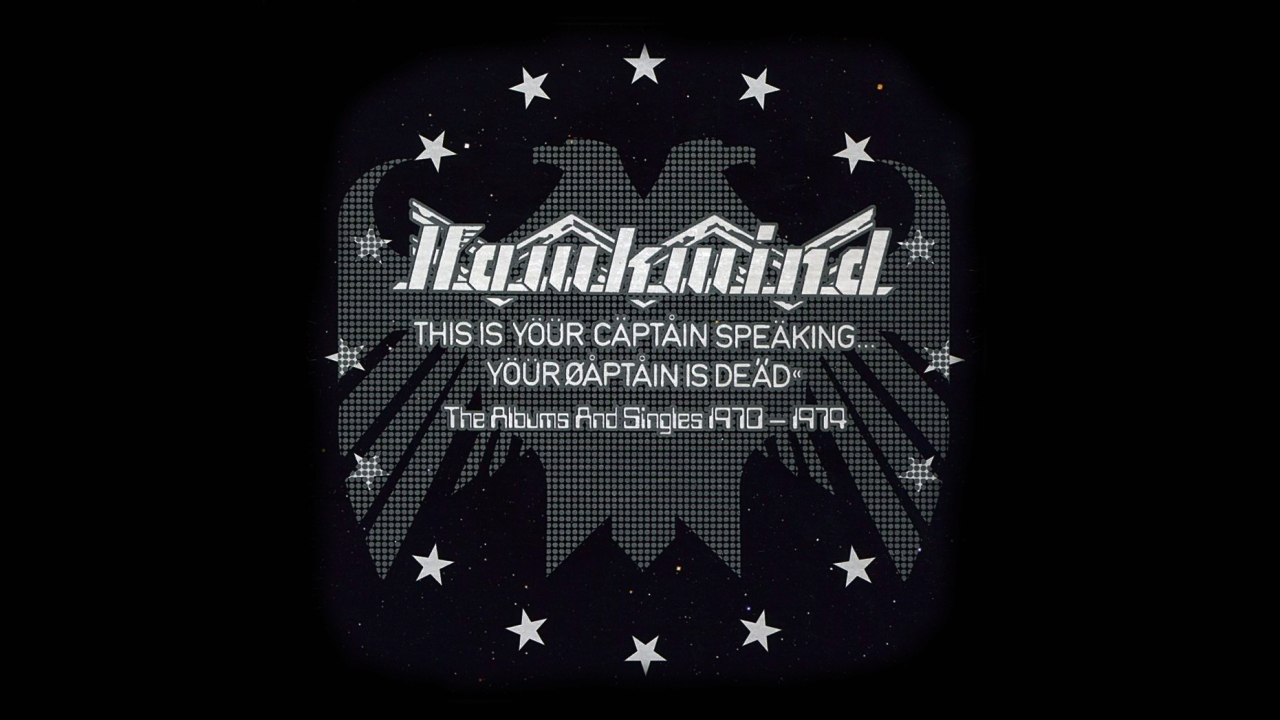You can trust Louder
Hawkwind were the unlikeliest of heroes. A bunch of Ladbroke Grove scruffs, so untogether they played their first gig without having any songs (or even a name), they didn’t seem built to last.
The fact that they grew into the British underground’s foremost champions is remarkable in itself. But their emergence as pioneering musical titans is something else entirely.
This indispensable box set charts the surge from furry freak squatters to transatlantic warlords, spanning 1970’s self-titled debut LP to a celebratory show in Chicago in March 1974 (titled, somewhat confusingly, The 1999 Party). It was a period that saw them fully embody the spirit of the age, a post-60s era when the heads, tired of looking for answers within, decided to seek solace from further afield: space. Hawkwind’s levitational psych-prog, like Floyd and Sabbath having fisticuffs in some distant nebula, was designed to agitate. 1971’s In Search Of Space was their first concerted attempt to use sound as a weapon, combining sci-fi mysticism with great swathes of electronica and walls of convulsive rock’n’roll.
It was a proposition that reached a very literal peak on Sonic Attack, a key moment from 1973’s Space Ritual. A majestic live double, recorded during the tour for Doremi Fasol Latido, it also contains wondrous versions of Master Of The Universe and Brainstorm. You can sense, too, the symbiosis between band and audience, each exhorting the other to reach higher.
A year earlier they’d scored a surprise Top 3 hit with _Silver Machine _(included here on the eighth and final disc, Of Time & Stars: The Singles), sung by new boy, bassist Lemmy. As if to prove frontman/guitarist Dave Brock’s assertion that Hawkwind aimed “to keep clear of the music business as much as possible”, they chose to follow it up with Urban Guerrilla, which swiftly landed a BBC ban in light of the IRA’s London bombing campaign. It remains one of the band’s most thrilling efforts, a Stooges-like riot that, along with Kings Of Speed, made a big impression on future punks John Lydon and Joe Strummer.
By ’74, Hawkwind were onto Hall Of The Mountain Grill, which still sounds incredible four decades on. The aptly-titled Wind Of Change is a billowy exercise in symphonic prog, and elsewhere the band get to flex their metal chops on The Psychedelic Warlords (Disappear In Smoke) and You’d Better Believe It.
Hawkwind still had much to offer in subsequent years, but this summation of their classic era is where the real gold lies.
Sign up below to get the latest from Prog, plus exclusive special offers, direct to your inbox!
Freelance writer for Classic Rock since 2008, and sister title Prog since its inception in 2009. Regular contributor to Uncut magazine for over 20 years. Other clients include Word magazine, Record Collector, The Guardian, Sunday Times, The Telegraph and When Saturday Comes. Alongside Marc Riley, co-presenter of long-running A-Z Of David Bowie podcast. Also appears twice a week on Riley’s BBC6 radio show, rifling through old copies of the NME and Melody Maker in the Parallel Universe slot. Designed Aston Villa’s kit during a previous life as a sportswear designer. Geezer Butler told him he loved the all-black away strip.


